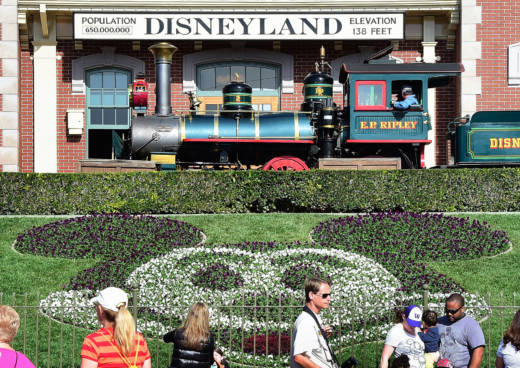Above the entrance to the Disneyland Resort in Anaheim is a plaque that reads, “here you leave today and enter the world of yesterday, tomorrow and fantasy.” For many, Disneyland is synonymous with family vacations, road trips down I-5 to Anaheim and family photos in front of Sleeping Beauty’s castle. Truly, the happiest place on earth.
In the midst of this bliss, we infrequently see the labor and hardship experienced by the 30,000 cooks, custodians, performers and other cast members that make “the place where dreams come true” possible.
Last February, Economic Roundtable and the Occidental College Urban & Environmental Policy Institute prepared a report titled “Working for the Mouse,” a study of the economic hardship associated with working at Disneyland.
According to that report, “Disneyland employees report high instances of homelessness, food insecurity, ever-shifting work schedules, extra-long commutes, and low wages."
In 2016, more than 27 million people visited Disneyland and generated more than $3 billion in revenue. Despite this fact, many workers make $15 per hour or less and often have to commute in from distant locations like Los Angeles.
A Disney employee says -- we’re not using his name because he could get fired -- after the report came out, Disney did offer a bonus to some employees. But with the cost of transportation to and from the park, the numbers just don’t add up.
“They’re giving us a $500 bonus, and they’re doing it in two parts. So we got part one in March, we’re getting part two in September. So we’re getting $250 and $250. But the thing is... it’s taxed. So, we actually got $175.”
Christopher Duarte, president and chief executive of Workers United Local 50 -- the largest union representing 6,700 workers -- says Disney has not come to the table to discuss strategies to address the problems brought up by the report.
A coalition of unions are gathering signatures for a November ballot initiative that would force large hospitality businesses benefiting from Anaheim city subsidies to pay at least $15 per hour to employees by 2019. But the unions know that if Disneyland opposes it, they can outspend them significantly.
We reached out to Disney for a comment, but they did not return our calls.
As for the anonymous employee, with all these issues, does he ever ask himself, “Why am I still doing this?”
He says, “Yes. Every day.”
Working for the Mouse: Living on Disneyland's Low Wages
02:07

People visit Disneyland in 2015 in Anaheim. (FREDERIC J. BROWN/AFP/Getty Images)
Sponsored
